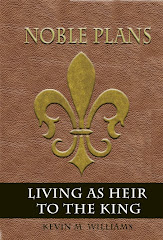
One of the most memorable moments in Mel Gibson's cinematic hit Braveheart (1995) was the movie's theme of freedom. Even after 14 years, William Wallace's final bellow into the crisp blue sky, "Fr-ee-ee-ee-dom!" still rings in my ears and heart.
Freedom is a theme in the Scriptures as well: "To proclaim liberty to captives, And freedom to prisoners" (Isaiah 61:1). Yet even as far back as the 16th Century—as England was still reeling from the wounds of political and religious persecution—biblical scholars recognized that this had little to do with political freedom and everything to do with fallen man. The Geneva Bible commentary states that freedom to prisoners was a message to those "who are in the bondage of sin."
There is much in the news these days about freedom and liberty. Some feel that they are under ardent attack here in the USA. Others feel this is the time — from their world view — to expand freedoms. There has been no meeting of the minds, only an increasing friction fed by flippant speeches resulting in civil unrest such as I have not witnessed in my adult life.
I think Oswald Chambers, author of My Utmost for His Highest gets right to the heart of the matter in his book Biblical Ethics:
Paul continually dealt with people who under the guise of religion were libertines; they talked about liberty when what they really meant was, “I insist on doing what it is my right to do, and I don’t care a jot about anyone else.” That is not liberty; that is lawlessness (96 R).We live in interesting times, to be sure. How does one rise above the fray and exhibit nobility? Once again, Oswald Chambers shares some insight:
We call liberty allowing the other fellow to please himself to the same extent as we please ourselves. True liberty is the ability earned by practice to do the right thing.I think Paul would back up Oswald's "True liberty is the ability earned by practice to do the right thing." "For you were called to freedom, brethren; only do not turn your freedom into an opportunity for the flesh, but through love serve one another" (Gal 5:13).
(Biblical Ethics, 96 L)
Peter understood it as well: "Act as free men, and do not use your freedom as a covering for evil, but use it as bondslaves of God" (1Pe 2:16).
There you have it: a noble plan for navigating the tide of incivility that threatens to stream around you. It may not be easy. Doing the right thing because it is the right thing to do is almost always difficult, made even more challenging when your way of life is being tasked with or without your consent. So as your heart calls out, "Freedom!"— avoid lawlessness, live nobly.
 |
"A noble man devises noble plans; and by noble plans he stands."
– Isaiah 32:8





No comments:
Post a Comment